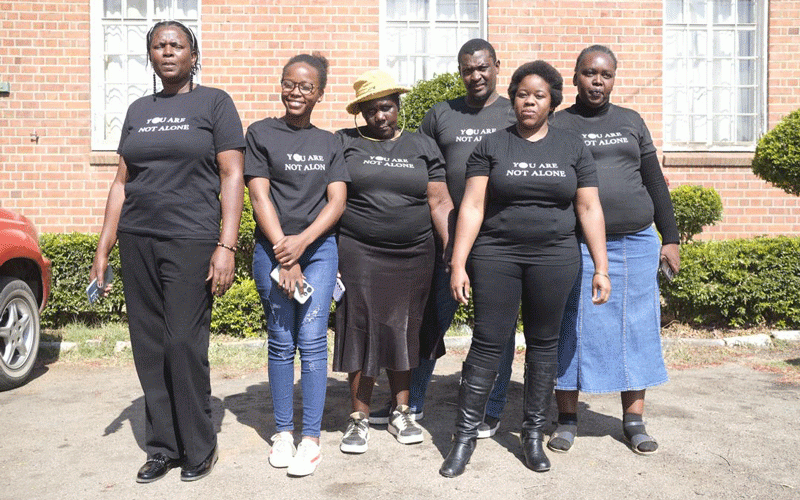
Warren Buffett once said that it takes 20 years to build a reputation and five minutes to ruin it; if you think about that, you will do things differently. The question for organisations is, why don’t they do things differently in the first place?
PUBLIC RELATIONS with Lenox Mhlanga
At a recent crisis management workshop hosted by Magna Carta Zimbabwe, a reputation management company, one of the top discussion points among participating communication managers, particularly in response to the current local and global financial climate, was the role of good reputation in distinguishing their brand from competitors and peers.
At the workshop, Vincent Magwenya and Sapi Bachi, CEO of Magna Carta South Africa and director at Magna Carta Zimbabwe, respectively, continued to highlight and underline the value of a strong and positive reputation in weathering fixed or fluid market-related issues.
Magna Carta is a reputation management consultancy that provides reputation management solutions for organisations and individuals that take their reputations seriously. The organisation has longstanding links with the TBWA global network. As part of Omnicom Group, TBWA has 275 offices in 100 countries that include Zimbabwe.
Real life experiences shared by seasoned communicators at leading Zimbabwean brands gave further proof that reputation management has some real bottom-line implications.
Li Ka Shing, Hong Kong-based billionaire and philanthropist, and arguably Asia’s second richest man, said as much when he noted that a good reputation for an individual and his company was an invaluable asset not reflected in the balance sheets.
Companies with good reputations retain the best employees and will do better during an economic downturn.
- Chamisa under fire over US$120K donation
- Mavhunga puts DeMbare into Chibuku quarterfinals
- Pension funds bet on Cabora Bassa oilfields
- Councils defy govt fire tender directive
Keep Reading
“Reputation is not just about what people are saying about your brand through traditional media or in the comfort of their own homes. During a crisis, user-generated content and the subsequent online reputation of a brand is put under spotlight,” said Magwenya.
A recent survey revealed that 72% of customers trust online reviews as much as personal recommendations from friends and family and more than half will return if an issue is dealt with quickly and efficiently. We are in the infancy of this industry, and it will never be less important than it is today.
“The attributes and associations that stakeholders carry about your brand, both online and offline, need to be consistently managed. Key to this is consistency on all the points where a brand meets its audience and this includes a website, social media or billboards,”
“It therefore follows that if a brand does that well, it is bound to build a great reputation,” Magwenya said.
Sapi Bachi added that in a choice-based market economy, characterised by local and foreign competition, market complexity and uncertainty, trust has become an invaluable currency. Therefore, if stakeholders do not trust your company, they do not invest or buy,” Sapi told participants “At Magna Carta, reputation management is our core business. Not only have we seen how successful corporate reputation management can build trust and impact financial success, we have witnessed it become a central talking point among chief executive officers who are increasingly identifying reputation as their number one risk and concern,” she said.
Corporate and brand communications, stakeholder relations, social public relations and crisis management are key elements of Magna Carta’s reputation management solution for organisations.
“In partnership with our valued clients, we ensure that these elements work together successfully and ensure that their brands consistently resonate with stakeholders even during a major crisis,” Sapi said.
Meanwhile, in today’s high-stakes and unpredictable business climate, where reputation is critical, understanding how to prepare for, navigate through and recover from crisis is vital to the longevity of any company, brand or organisation, writes Josey Hankey from Open Post.
Today, a new book hits the shelves designed to arm business leaders with the essential tools to succeed in this arena. The Art of Crisis Leadership, written by Fallston Group chief executive Rob Weinhold and co-authored by New York Times best-selling author Kevin Cowherd, shares secrets and strategies gleaned from decades of work in the highly-specialised field of crisis leadership.
Times best-selling author Kevin Cowherd, shares secrets and strategies gleaned from decades of work in the highly specialised field of crisis leadership.
A former Baltimore police and United States Department of Justice executive who during his career has appeared on CNN, FOX News, MSNBC and many other national, regional and local media outlets, Weinhold expertly discusses, among others, data breaches, social media attacks, natural disasters, financial distress, sex scandals and political vendettas and how to both prevent and overcome them.
Each of the book’s 17 chapters highlights a real-life crisis, many told directly by the individuals who experienced them. Coupled with Weinhold’s key takeaways at the end of each chapter, The Art of Crisis Leadership is a must-read tool to understand the many challenging nuances of successfully managing adversity or crisis. The lessons learned are universal.
l Lenox Mhlanga is a specialist communication consultant and can be contacted on email: [email protected] for information in the article.











